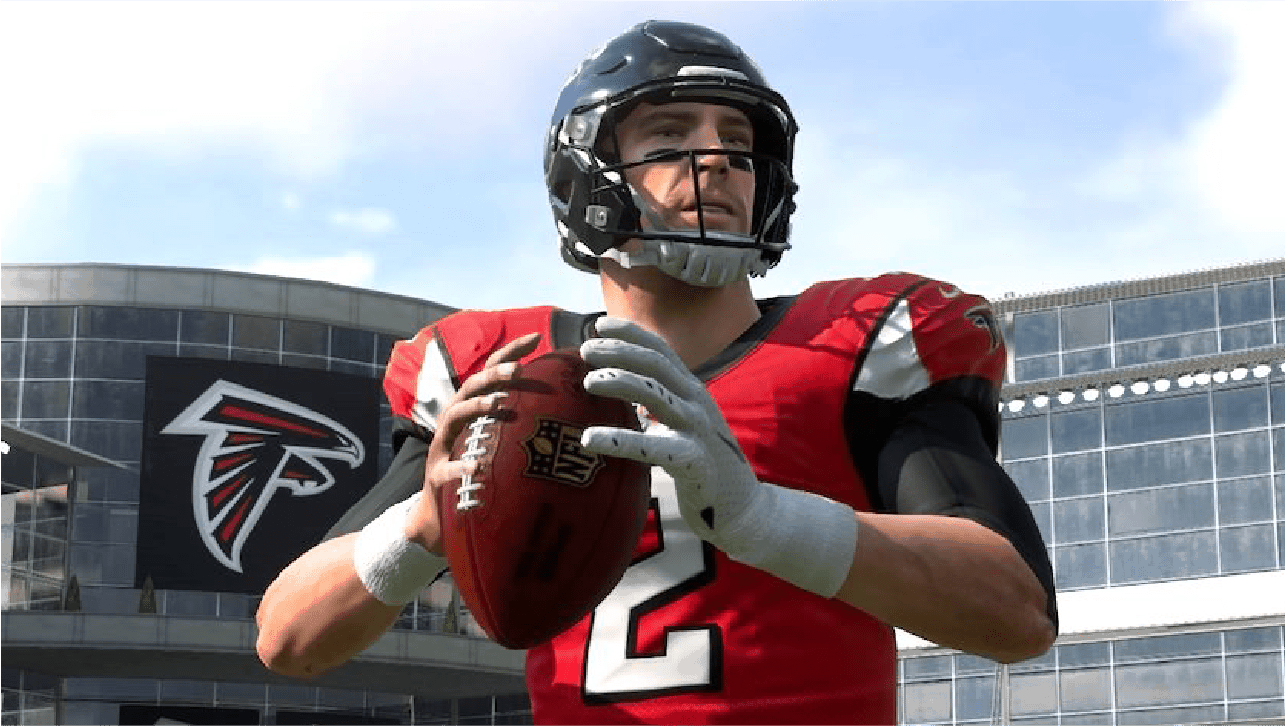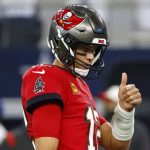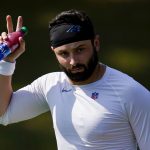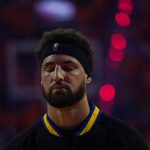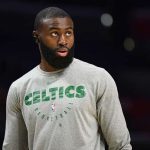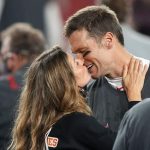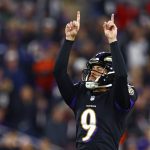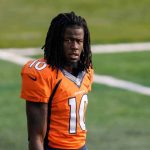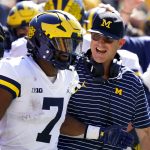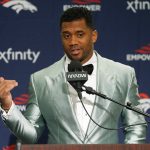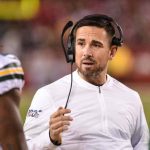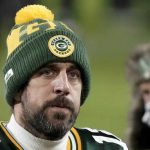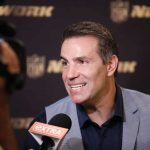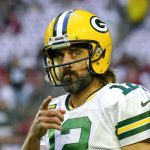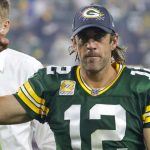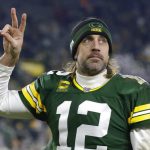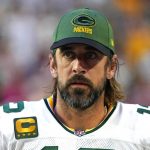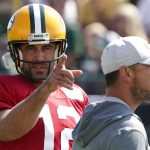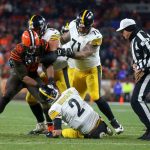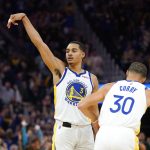I love living in the past and I love drowning in hypotheticals. My favorite thing to explore is the butterfly effect of every individual moment and explore what could happen if certain events never transpired. As such, I thought it would be a fun exercise to run the NFL back to a point in time before everything we know and love about the league today had a chance to come to fruition. But in order to do that, I had to use the ultimate prognosticator in the business: old-ass versions of Madden.
That’s right, we are rerunning the NFL of the last decade. No Lamar Jackson or Patrick Mahomes, no Sean McVay or Kyle Shanahan and most importantly, no Bill O’Brien running the Texans.
I placed the NFL timeline back to the 2011-12 season for a couple reasons. For one, it resets virtually every one of the league’s top quarterbacks, creating a massive amount of variance, but Drew Brees and Aaron Rodgers are both already Super Bowl champions in this timeline and trending towards Hall of Fame resumes. But the more significant reason is that Madden 12 is the earliest version of the game I owned. So yes, we are rolling back to XBOX 360 for these simulations. Going back far but not too far to a reasonably advanced system offers a lot of potential futures, but also some logic with regards to player progression and roster moves. I am not sure how far down the road I will be simming, but plan on it at least bringing us to present day.
Up next, the 2013-14 season.
Past Results
2011-12 Super Bowl Champs: Chargers
2012-13 Super Bowl Champs: Steelers
2013-14 Results
| Sim Result | Real Life Result | |
| NFL MVP | Peyton Manning | Peyton Manning |
| OPOY | Peyton Manning | Peyton Manning |
| DPOY | Joey Porter | Luke Kuechly |
| OROY | LaCraig Calloway | Eddie Lacy |
| DROY | KaDaryl Reese | Sheldon Richardson |
| Coach of Year | Jim Caldwell | Ron Rivera |
| Best Record | Colts (13-3) | Broncos/Seahawks (13-3) |
| AFC Champ | Colts | Broncos |
| NFC Champ | Falcons | Seahawks |
| SB Champ | Falcons | Seahawks |
| Top Passer | Peyton Manning (4,363) | Peyton Manning (5,477) |
| Top Rusher | Darren McFadden (1,554) | LeSean McCoy (1,607) |
| Top Receiver | Mike Williams (1,515) | Josh Gordon (1,646) |
| Sack Leader | Joey Porter (19) | Robert Mathis (19.5) |
| Int. Leader | 2-Way Tie (7) | Richard Sherman (8) |
The Sim Season
Key Address Changes
The big move that helped define the season was Denver’s decision to roll with Kyle Orton instead of Tim Tebow. It had significant impacts on both Denver and the team Tebow would eventually sign with. Outside of that, the big moves were mostly with veterans in their finals years of their careers looking for one last big contract.
Roster Moves
- Bengals sign Jason Peters and Marshawn Lynch
- Bills sign Ahmad Brooks
- Broncos release Tim Tebow after three seasons. Instead re-sign Kyle Orton for five years.
- Broncos also sign Antrell Rolle
- Browns sign Tony Gonzalez and Brian Urlacher
- Buccaneers sign Steve Hutchinson and Santana Moss
- Cardinals sign Steve Smith and Tim Tebow
- Cowboys sign Bob Sanders
- Dolphins re-sign Matt Hasselbeck
- Eagles sign Anquan Boldin
- Patriots release Julian Edelman
- Rams sign Corey Peters
- Steelers sign Andrew Whitworth
Retirements
- Ladanian Tomlinson
- Charles Woodson
- Chad Ochocinco
- Randy Moss
- Antoine Winfield
- Takeo Spikes
Rookies
Top-Five Picks
The Cardinals had the second pick, traded back to six, then traded back to 10, so they racked up some picks in their rebuild. Meanwhile, the 1-15 Chargers went a different direction with the No. 1 pick.
- Chargers select RB LaCraig Calloway, Maryland
- Lions select LT Jawaun Beasley, Miami
- Browns select QB Tim Alston, Northwestern
- Cowboys select CB Isaiah Sanchious, Ohio State
- Bengals select LB Devin Chapman, Michigan
The only other first-round quarterback was Chandler Waslelewsci out of UConn who went No. 9 to the Dolphins. However, the Browns went into the season with Colt McCoy starting over Alston and the Dolphins rolled with Matt Hasselbeck instead of Waslelewsci. As a result, exactly zero rookie quarterbacks were day-one starters.
The highest-rated rookie was Colts defensive tackle Jabbar Gist out of Murray State, an 86 overall who was drafted in the sixth round. What a steal for Indianapolis. He was followed closely by Saints sixth-round corner Tim Gordon (85), Chiefs first-round safety JaMarkus Cline (85), Seahawks first-round corner Tavon Austin (84, different guy) and No. 1 overall pick LaCraig Calloway.
Key Injuries
The big one was Drew Brees who went down with a torn groin in preseason and did not play a regular season snap. A pair of rookies replaced him, but the Saints struggled and failed to make the playoffs. Other quarterback injuries of note were second-year starters Shane Joseph and Connor Murphy missing multiple weeks, though their absences had little impact on their team’s playoff hopes. Andy Dalton and Carson Palmer also missed most of the season, though again, the Bengals and Raiders did not have high hopes with those guys to begin with, necessarily.
Other notables were Andre Johnson missing the whole season with a broken ankle, Larry Fitzgerald missing about half the season with a broken arm and a handful of left tackles going on IR, including Anthony Castonzo, Ryan Clady and Russell Okung.
Top Teams
The Colts set the standard from a record standpoint at 13-3, but they were by no means the league’s most impressive team. That honor goes to the Kansas City Chiefs quarterbacked by Matt Cassell. The Chiefs finished as the league’s highest-scoring offense and third-lowest-scoring defense, yet somehow only got to 12-4. The Chargers got back on track a bit by posting the second-best offense, but at 9-7, they limped into the playoffs as a Wild Card. Pittsburgh at 12-4 looked a contender again as the defending champs, earning a bye despite ranking below Kansas City on both sides of the ball.
The NFC had a bit more parity with three 11-5 teams up top. Atlanta earned the top seed thanks to a strong defense, and Arizona earned the other bye with Tim Freaking Tebow leading the way for them. As a result, the NFC’s most impressive team, Seattle, fell to a Wild Card. The Packers had the NFC’s best offense, but thanks to the league’s third-worst defense, they went 9-7, just behind defending NFC champ Chicago, so they too entered the postseason as a Wild Card.
Worst Teams
Buffalo is the only outlier bad team at 3-13. No one else finished worse than 5-11. With the Bills, the formula was simple — they had the worst defense in football and the third-worst offense, quarterbacked by a combination of Kevin Kolb and Terrelle Pryor. They will almost certainly be in the quarterback mix with the No. 1 pick. Behind them were a pair of 5-11 teams, the Jaguars and Eagles, followed by SEVEN 6-10 teams. Again, there was a lot of parity this year.
Top Players
Peyton Manning took home MVP honors for the second year in a row, and this time he actually deserved it, though Aaron Rodgers gave him a run for his money with 30 touchdowns and only six interceptions. The NFL should probably feel bad for giving Manning the “thanks for everything” MVP last season.
I don’t know what it is with these dang sims, but NFL teams just don’t throw the ball much. Manning was the only player in the NFL to top 4,000 yards this season, though five passers hit the 30-touchdown mark.
Meanwhile, the 1,000-yard rushers keep building. This year there were 23, up from 21 last year and 17 the year before. Darren McFadden led the way with 1,554 yards, just edging Rashard Mendendhall, Michael Turner and Maurice Jones-Drew, who also hit 1,500 yards on the ground. The touchdown king was LeGarrette Blount with 15 to go along with 1,359 yards rushing.
Our top receiver was veteran Mike Williams of Seattle, who completed his bounce-back from bust status to record 1,515 yards and 11 touchdowns. The only guy even in his stratosphere was Brandon Marshall who had 1,461, but only six touchdowns. Those two were the only 100-catch receivers this season. Though, once again, Greg Jennings led in touchdowns with 13, despite only 77 receptions.
In his 15th year in the league, Joey Porter came away as the sack leader with 19, 3 1/2 more than anyone else. He also forced six fumbles and had a four-sack game in week 13, earning Defensive Player of the Year at age 36. Brandon Flowers and Rashean Mathis split the interception title with seven.
Rookie Report
What do you know? Maybe the Chargers knew what they were doing all along when they took a running back first overall. LaCraig Calloway won Offensive Rookie of the Year despite being outrushed by fellow rookie KeShawn Lattimore, largely due to Calloway’s 200-plus yards receiving and 10 total touchdowns. Lattimore contributed next to nothing in the passing game, though he rushed for over 1,000 yards.
The only rookie quarterback with significant playing time were two Saints: fifth-rounder Joey Bohannon and undrafted Jake Fleming. Brees’ injury put him out the whole season, and Bohannon stepped in fairly well in his place, throwing for 13 touchdowns and six picks before he went down himself with a broken collarbone. Fleming was not good as the third-stringer, throwing 12 interceptions and only nine touchdowns in nine appearances. Neither first-round quarterback played any meaningful time this year.
Defensively, the standout was Ravens 15th overall pick KaDaryl Reese with 13 1/2 sacks and three forced fumbles to win Defensive Rookie of the Year. Undrafted rookie linebacker Jabyess Sparks was not far behind in the voting after recording 119 tackles and three sacks, and his Cowboy teammate Isaiah Sanchious picked off five passes.
The Playoffs
| Seed | AFC | NFC |
| 1 | Colts (13-3) | Falcons (11-5) |
| 2 | Steelers (12-4) | Cardinals (11-5) |
| 3 | Chiefs (12-4) | Giants (10-6) |
| 4 | Patriots (10-6) | Bears (10-6) |
| 5 | Chargers (9-7) | Seahawks (11-5) |
| 6 | Broncos (8-8) | Packers (9-7) |
Wild Card Round
Seahawks defeat Bears 27-24
Chiefs defeat Broncos 22-15
Giants defeat Packers 34-20
Patriots defeat Chargers 30-9
As we prefer in these sims, the better teams came out on top in every game with the only seed upset coming from Seattle defeating Chicago. If these games are any indication, the Patriots and Giants seemed headed towards a Super Bowl XLII rematch, as they both posted impressive wins. Kansas City’s narrow win over 8-8 Denver strikes as a bit disappointing given how dominant they were in the regular season.
Divisional Round
Cardinals defeat Seahawks 24-22
Falcons defeat Giants 35-17
Steelers defeat Chiefs 19-16
Colts defeat Patriots 23-16
We have an AFC Championship rematch on the horizon! The Colts knocked off the Patriots in the Division Round for the second year in a row with Manning again outdueling Tom Brady. Indianapolis has completely turned around the early days of the Brady-Manning rivalry by consistently playing spoiler to the Patriots’ title hopes. The Steelers, despite only scoring 19 points, outgained the powerhouse Chiefs by almost 130 yards, thanks in large part to Heath Miller putting up 158 receiving yards and a touchdown. Matt Cassell hung with Ben Roethlisberger, but the Steelers got into the red zone one time more, and that field goal ended up being the difference.
In the NFC, we have the shocker of all shockers with Tim Tebow headed to the Championship Game. Tebow threw 34 times for 247 yards and two touchdowns, so the Cardinals found success because of him, not merely with him. Second-year running back Teddy Scrivens added 114 yards and a touchdown on 17 carries. Seattle scored a late touchdown to bring them within 2, but the 2-point conversion failed and Arizona ran out the clock to move on. The Falcons and Giants had the least drama — Atlanta got up 21-0 a minute into the second quarter and held New York at an arm’s reach the rest of the way.
Conference Championships
Falcons defeat Cardinals 24-10
Colts defeat Steelers 20-17
Indianapolis managed to avenge last year’s embarrassing loss as they absolutely dismantled the Steelers on both sides of the ball, at least in terms of yardage. They nearly doubled Pittsburgh’s production (517 total yards to 280), but because of three turnovers (two on Manning picks), they never pulled away. Despite the turnovers, the Colts gameplan could be boiled down to “screw it, Peyton does everything” as Manning threw 68 times, completing 36 for 453 yards. Through the massive yardage disparity, the Steelers kept it close and even held a lead late. The Colts needed a Manning touchdown pass to Dallas Clark with 2:36 left to tie the game, and Joe Nedney hit the field goal in overtime to move Indianapolis on. Indy was clearly looking to live and die by Manning’s arm.
Again, Atlanta moved on without much drama. They looked like the best team in the postseason and went into the Super Bowl as the favorite, even though the Colts had the MVP and the league’s best record. While Matt Ryan did not put up Manning’s volume, he was far more efficient, throwing three touchdowns at 7.6 yards per attempt, good for a 119.4 rating against a strong Arizona defense.
Super Bowl
The Super Bowl was played in the frozen tundra of East Rutherford, N.J., 18 degrees at opening kickoff. The previous record for coldest outdoor Super Bowl was Super Bowl VI in 1972, which was 39 degrees. And Mike Smith wore an ill-fitting puffy coat with no gloves for the coldest Super Bowl ever, presumably relying on adrenaline and personal befuddlement to power through the cold. But the arctic temps had no effect on the game itself, as both offenses exploded and gave us by far the best Super Bowl of these sims.
The Colts got out to a 17-3 lead early in the second quarter, but then Roddy White and Matt Ryan took off. Ryan hit White for touchdown passes of 25 and 71 yards in the second quarter (with a Manning to Reggie Wayne score sandwiched in between), then Ryan capped off the strong quarter with a 15-yard touchdown to Julio Jones. 24-24 at halftime made this single half the greatest Super Bowl of the sim NFL era.
By comparison, the second half was much less high-flying, but certainly dramatic. Neil Rackers recorded the only points of the third with a 32-yard field goal for Atlanta. Outside of that, Atlanta’s offense stalled and Manning threw a couple of interceptions, so neither team could pull away.
The fourth quarter brought the fireworks. A Rackers field goal put the Falcons up 6, but halfway through the quarter, Manning drove down to the 1-yard line and second-year back Garrod Boykin punched it in for his second score of the game. For the record, Boykin had three touches for four yards, and two of those touches got him in the end zone from one yard out. After that score, the teams traded punts before Ryan got the ball back with 2:36 remaining. He drove down to the Colts 15, then a perfectly executed screen pass to Michael Turner put the Falcons up 36-31. A failed 2-point conversion, however, left the door just a crack open for Manning.
Alas, the Peyton heroics of yore had clearly passed him by, and the Colts fizzled out on the final drive. Atlanta held on to win one of the more exciting Super Bowls of the modern era.
Over 1,000 yards of total offense was a godsend after two Super Bowl duds. Manning and Ryan were both outstanding, completing over 70 percent of their passes for over 400 yards apiece. However, Manning’s two touchdown passes were offset by two picks, while Ryan kept a clean sheet with four touchdowns and no interceptions. As a result, he was the well-deserved MVP, capping off an outstanding postseason for him. Though Roddy White’s 190 yards and two scores left him a close second, as did Sherrod Martin‘s two picks.
Overall, this season was the most intriguing one yet and maybe indicative of the league’s push to throwing the ball moving forward. Time will tell.
Falcons defeat Colts 36-31
Check back next week as we tackle the 2014-15 NFL season!
🔥 Hot from Side Action 🔥
- Lala Anthony Blames Knicks for the ‘Demise of their Relationship’
- Ja Morant Being Linked to Singer Lotto’s Sister Brooklyn
- Rumor: Instagram Model ‘Ayyyejae’ Connected to Phoenix Suns Is Now Pregnant by NBA Player
- Rumor: Jalen Rose Spotted With New Girlfriend Angela Rye
- Spurs Josh Richardson is Dating Former America’s Next Top Model Runner-Up Tatiana Elizabeth

